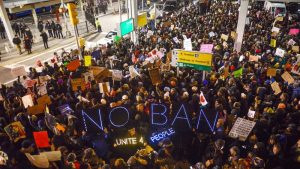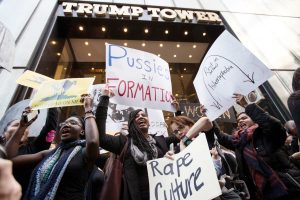By Robert Wayne Ressler

Recently, I was looking for inspiration to better understand how nonprofit organizations, a focus of some of my research, might be capable of engendering social change. As organizations that operate within the capitalist system but are different from typical business ventures because of the non-distribution clause that forbids the sharing of “profits” outside of the organization, the tax-exempt status of nonprofit organizations and the fact that many of them are driven by a “mission” to change the social landscape makes nonprofits appeal to me as a rich field for investigations using the sociological imagination. A natural place to start, in my mind, was a look back at Max Weber’s discussions on the rise of capitalism through the Protestant work ethic and the entrenchment of the accumulation of wealth in modern society.
Imagine my surprise when what I ended up coming across, while still relevant for my research, was an article that resonated more with the current political climate of the United States of America. No doubt R. Bruce Douglass, the author of “‘Shell as Hard as Steel’ (Or, ‘Iron Cage’): What Exactly Did That Imagery Mean for Weber?” in The Journal of Historical Sociology, was thinking of the recent election when he penned the following in regards to Weber’s writings on democracy:

“Even if (democracy) did enable some of the (social) movements in question to acquire power, therefore, it would hardly be appropriate to interpret such a development as a means by which the masses could actually take control of their lives. And he believed it was almost certain that the consequences of the conquest of power by any such movement would prove that to be the case. It would not be the masses who would end up running things, but their leaders. And in its own way the rule of such people was likely to be just as autocratic (if not more so) as the one it replaced, even toward its own supporters,” (p. 513).
Not only does this quote illuminate some of the processes that people in the U.S. witnessed leading up to the election and the executive orders of the new administration, I think it is particularly relevant in light of the mass protests that have happened in Washington, other state capitals, other world cities, and airports across the country. Weber, as Douglass points out, was very critical of the sort of “herd-mentality” that democratic politics create. My question, then, is what makes us, the individuals participating in the Women’s March and other demonstrations, more able to ensure that any democratic victories are victories for the masses and not just our leaders?

Last week, Dr. Rashawn Ray visited UT to discuss racism and the criminal justice system, but also took some time to share the results from, and media coverage of, a survey he helped to conduct of Women’s March participants. Two main conclusions were particularly interesting that might help to point the way towards distinguishing an active citizenry from a herd of cows: that the marches drew many first time protestors, and that the issues represented were multi-faceted and intersectional. A quick glimpse at the best protest posters from around the country helps to qualitatively verify these points. These facts, in addition to the global nature of the protests, suggest that a social movement can be based on more than just the election of certain leaders over others and instead focus its efforts on the promotion of certain ideals such as fairness, equality, and inclusion.

I don’t think Weber’s writings anticipated this shift in the focus of the reasons for social mobilization, moving beyond certain groups merely electing individuals who will then pass laws that are in line with their own political views. Instead, the Women’s March and similar demonstrations, broadens to include activism to create a vision of society in which basic human dignity and worth are fundamentally incorporated into laws and into institutions. This perspective opens the possibility that individuals interested in facilitating the realization of a more just and responsible society may succeed in escaping the sort of political serfdom that Weber pessimistically predicts. I’ll close with a quote from the well-known French political scientist, Alexis de Tocqueville, from his work Democracy in America: “The genius of democracies is seen not only in the great number of new words introduced but even more in the new ideas they express.”
Robert Wayne Ressler is a Ph.D. student in the Department of Sociology. His research interests concern how nonproft organizations provide opportunities to reduce inequalities with a special interest in educational stratification and inequality.
